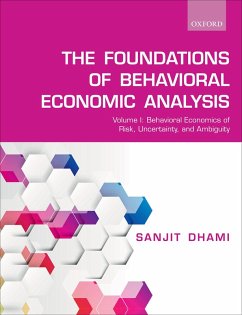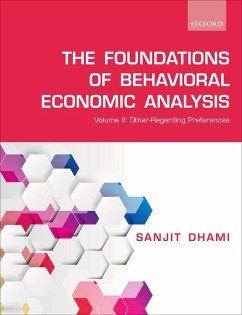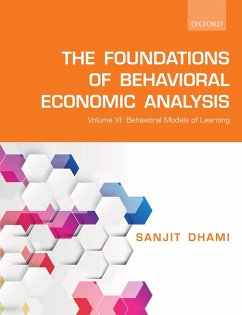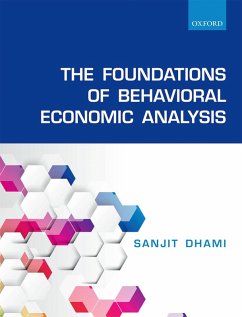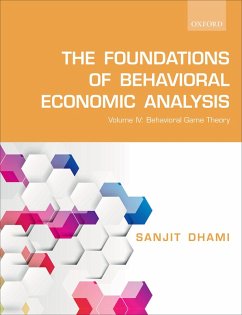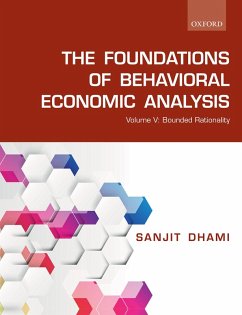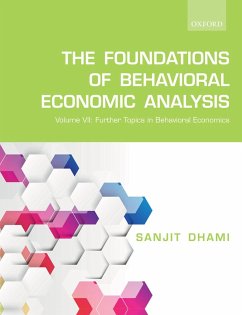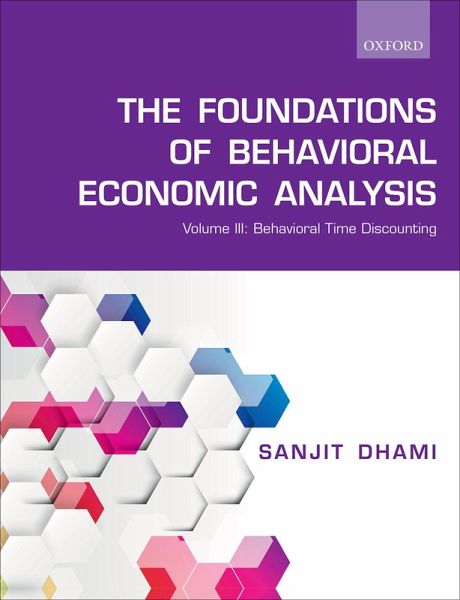
The Foundations of Behavioral Economic Analysis (eBook, PDF)
Volume III: Behavioral Time Discounting
Versandkostenfrei!
Sofort per Download lieferbar
14,95 €
inkl. MwSt.
Weitere Ausgaben:

PAYBACK Punkte
7 °P sammeln!
Taken from the first definitive introduction to behavioral economics, The Foundations of Behavioral Economic Analysis: Behavioral Time Discounting is an authoritative and cutting edge guide to this essential topic for advanced undergraduate and postgraduate students. It considers the evidence against the exponential discounted utility model and describes several behavioral models such as hyperbolic discounting, attribute based models, and the reference time theory. This updated extract from Dhami's leading textbook allows the reader to pursue subsections of this vast and rapidly growing field ...
Taken from the first definitive introduction to behavioral economics, The Foundations of Behavioral Economic Analysis: Behavioral Time Discounting is an authoritative and cutting edge guide to this essential topic for advanced undergraduate and postgraduate students. It considers the evidence against the exponential discounted utility model and describes several behavioral models such as hyperbolic discounting, attribute based models, and the reference time theory. This updated extract from Dhami's leading textbook allows the reader to pursue subsections of this vast and rapidly growing field and to tailor their reading to their specific interests in behavioural economics.
Dieser Download kann aus rechtlichen Gründen nur mit Rechnungsadresse in A, B, BG, CY, CZ, D, DK, EW, E, FIN, F, GR, HR, H, IRL, I, LT, L, LR, M, NL, PL, P, R, S, SLO, SK ausgeliefert werden.




